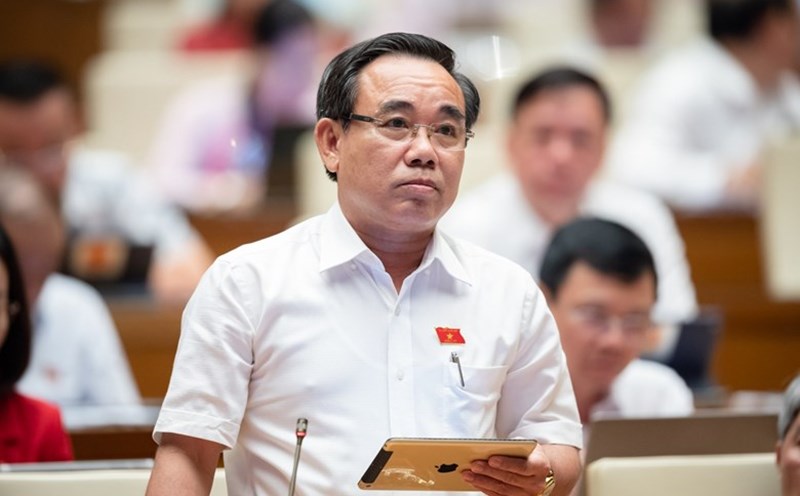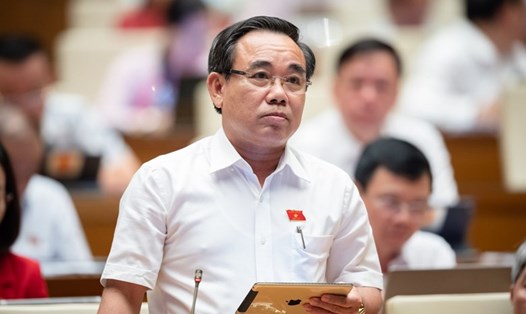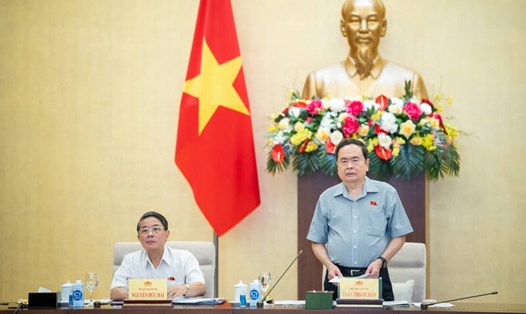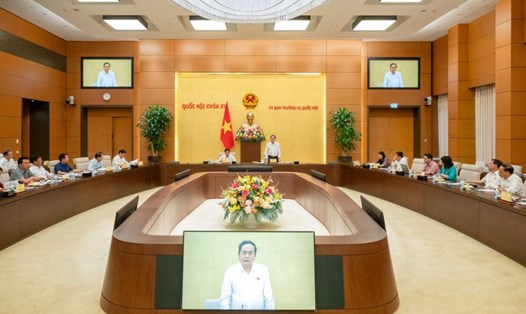Editor's note: Institutions are one of the three strategic breakthroughs that the Party and State pay special attention to. Because when institutions are perfected, legal problems are resolved, which will free up resources, promote economic and social development, and vice versa.
Recognizing the importance of institutional improvement, during its sessions, in addition to supervising and deciding on important national issues, the National Assembly always spends most of its time on legislative work.
The National Assembly has made efforts to innovate its thinking and law-making methods in line with the spirit that law-making must originate from reality, with people and businesses as the center and subject; promptly removing difficulties and obstacles to unleash all resources for socio-economic development, ensuring national defense and security.
The key to growth
The Resolution of the 10th Central Conference emphasized the task of innovating the thinking of law-making in the direction of promptly concretizing the Party's policies and resolutions; the law-making process must be professional, scientific, timely, feasible, and effective; must originate from and promptly respond to development requirements and rapid changes in practice, taking people and businesses as the center.
Recently, the National Assembly has paid great attention to changing the way of law-making to promptly respond to newly arising issues that the law has not yet promptly adjusted, without waiting for a preliminary or final review to comprehensively amend.
At the opening session of the 8th Session, General Secretary To Lam emphasized that in recent times, the activities of the National Assembly have undergone many innovations, becoming more substantial and effective. The National Assembly has increasingly promoted its role as the highest representative body of the people, the highest State power body with three important functions.
The General Secretary requested to strongly innovate the organization and operation of the National Assembly, ensuring effective and efficient operations; improving the quality and efficiency of performing the tasks and powers of National Assembly deputies, considering this one of the key factors to innovate the activities of the National Assembly.
The activities of the National Assembly, its agencies, and its deputies must be "in tune with their roles and responsibilities"; clearly define the functions, tasks, and relationships between agencies, especially those of the National Assembly and the Government, to ensure consistency and harmony in the national governance process.
According to the General Secretary, of the three biggest bottlenecks today, namely institutions, infrastructure and human resources, institutions are the “bottleneck” of “bottlenecks”. The quality of law making and improvement has not met practical requirements, and some newly issued laws have had to be amended.
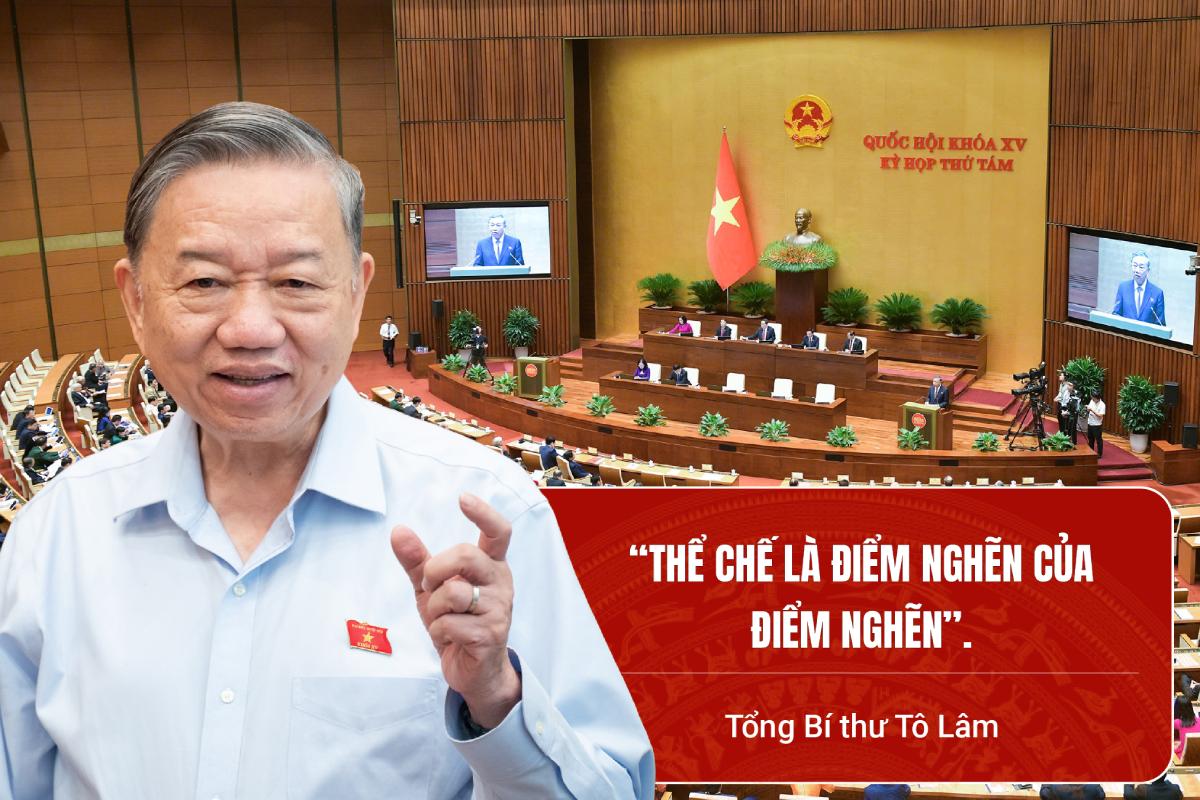
The shortcomings and limitations that have existed for many years need to be urgently overcome, so as not to hinder development, cause waste, and miss opportunities for national development in the new era. This is the responsibility of the entire political system, but a great deal of responsibility rests on the shoulders of the National Assembly, its agencies, and the Government.
The General Secretary suggested that the National Assembly and its deputies need to be highly unified and exemplary, take the lead, and make active and important contributions to building the country's development institutions with the spirit of innovation and reform, wholeheartedly and wholeheartedly serving the Fatherland and the people.
The country's burning reality is posing urgent problems that need to be solved. People are waiting and expecting the decisions of the Party, the State, and the National Assembly.
The General Secretary also requested the National Assembly, its agencies, and its deputies to promote the spirit of solidarity, responsibility, innovation, and breakthroughs, to excellently fulfill their responsibilities, and to join the entire Party, people, and army in uniting and striving to soon successfully build a socialist Vietnam.
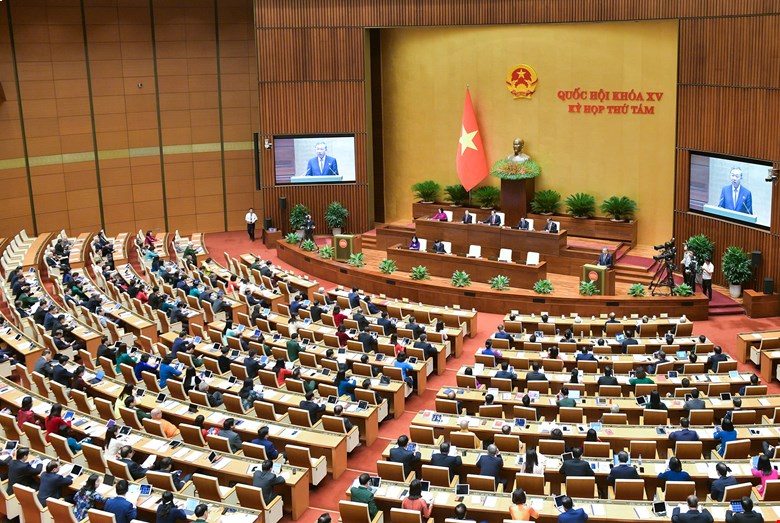
Absolutely give up the mindset that if you can't control it, then ban it.
General Secretary To Lam’s message on innovation in law-making thinking has received special attention from delegates. Many opinions commented that these are important directions for innovation in legislative work, creating a breakthrough in institutions, bringing the country firmly into a new era, an era of national growth.
"As the General Secretary said, among the three bottlenecks, institutional bottlenecks are one of the very important bottlenecks to remove difficulties, existing obstacles, and limitations in the process of implementing institutions as recently.
Therefore, innovation in law-making in the current period is an urgent issue," said delegate Nguyen Minh Tam (Quang Binh Delegation).
Delegates also expressed high consensus on the need to abandon the mindset of "if you can't manage, then ban". Legislative work needs to aim at both ensuring state management and unleashing all resources for development.
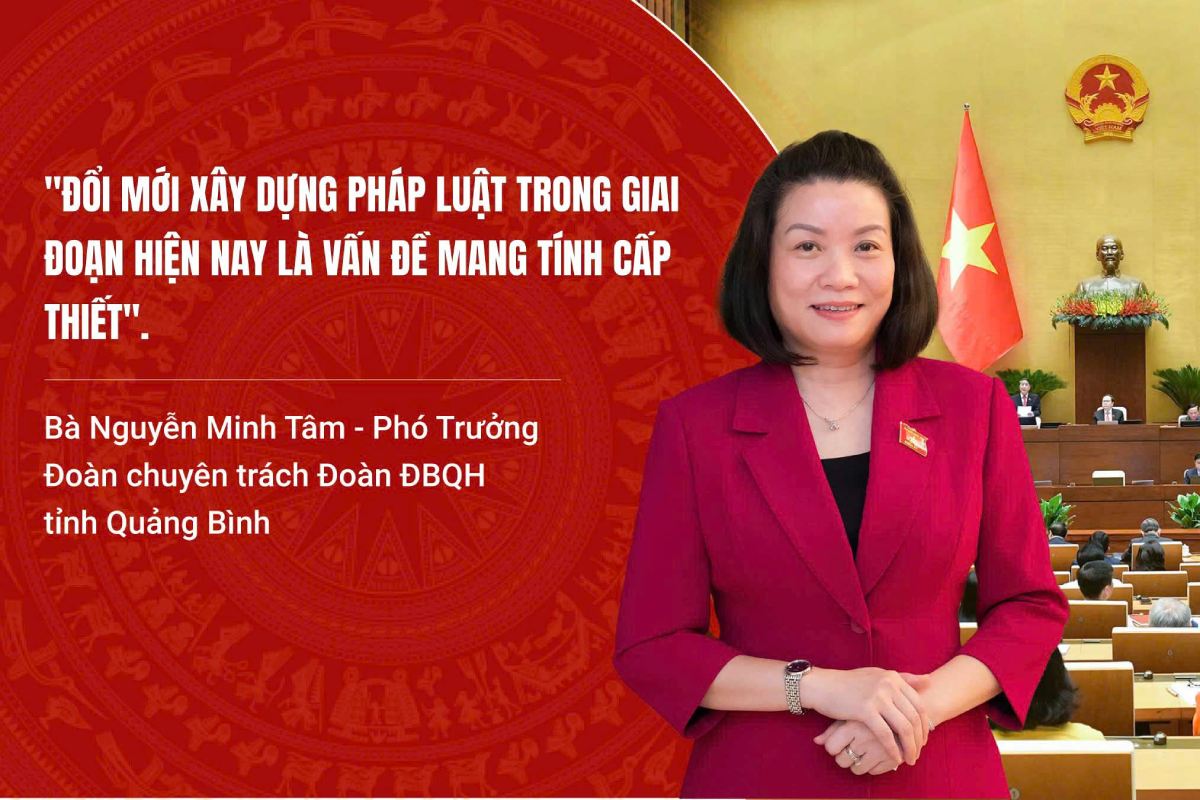
"I find the General Secretary's thinking very correct and it will help the agencies drafting the Vietnamese legal system to consider carefully and when discussing the content of the law, it must be feasible in the long term, combined with Vietnamese reality but must absorb the quintessence of the world," said Mr. Tran Hoang Ngan, a National Assembly delegate of Ho Chi Minh City.
Prof. Dr. Hoang Van Cuong, member of the National Assembly's Finance and Budget Committee, analyzed that the first core point of institutional innovation must come from perfecting the legal system.
Therefore, there needs to be change, the law must be the basis to meet the needs of people and businesses, not everyone must revolve around the provisions of the law. Legislative work must create a framework, a corridor for those who enforce the law to apply it to meet reality.
"The law must create a framework for all enforcers to be proactive and creative in their application, with the core goal of meeting the needs of people and businesses while creating flexibility in the law enforcement process.
That is empowerment, the greatest empowerment, creative empowerment, dynamic empowerment and that is an institution that we call a creative institution," said Mr. Hoang Van Cuong.
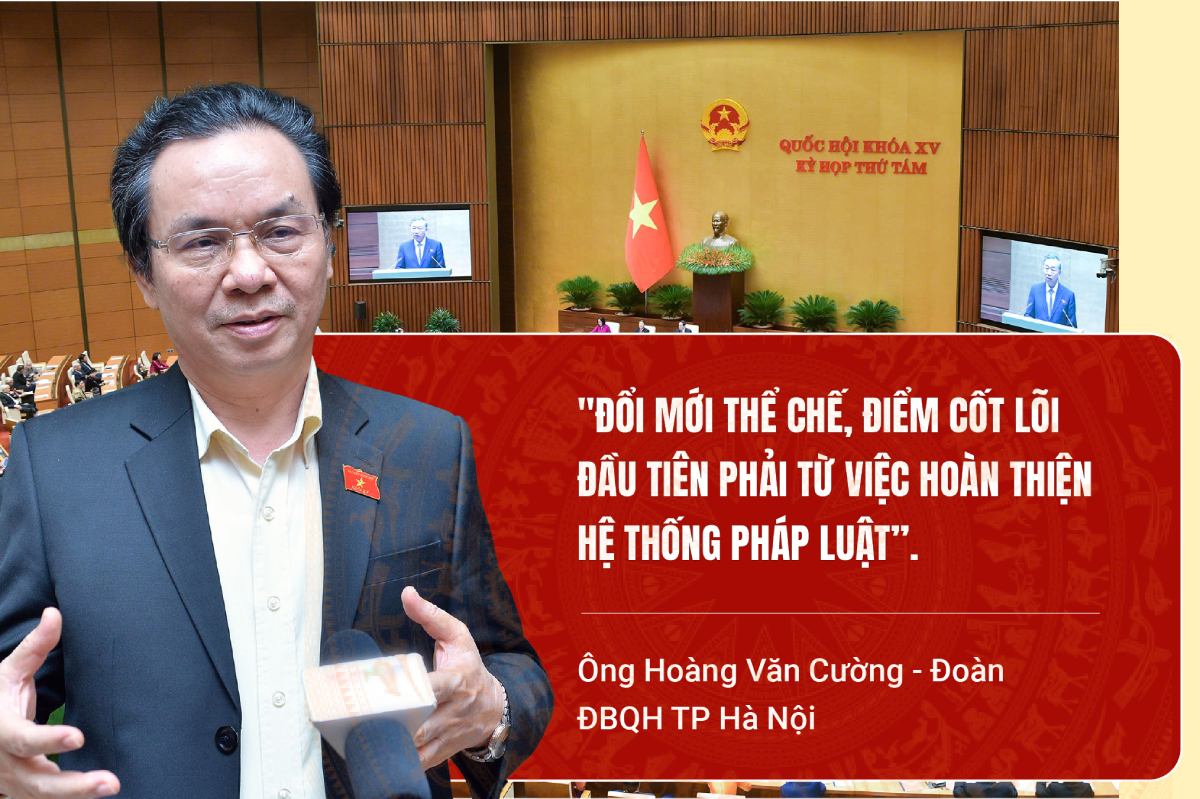
In addition to perfecting the legal system, it is also necessary to improve the effectiveness of law implementation. Overcoming the situation where laws are promulgated but not yet put into practice because of waiting for detailed guidance documents, which has been happening for many years, and has not yet been completely resolved.
The National Assembly and the Government have organized many conferences to disseminate and implement the law. This shows the importance of law implementation, contributing to urging and accelerating the issuance of guiding documents and detailed regulations for implementation, enhancing the responsibility of the Government, ministries, branches, agencies and localities in promptly bringing the laws into life.

